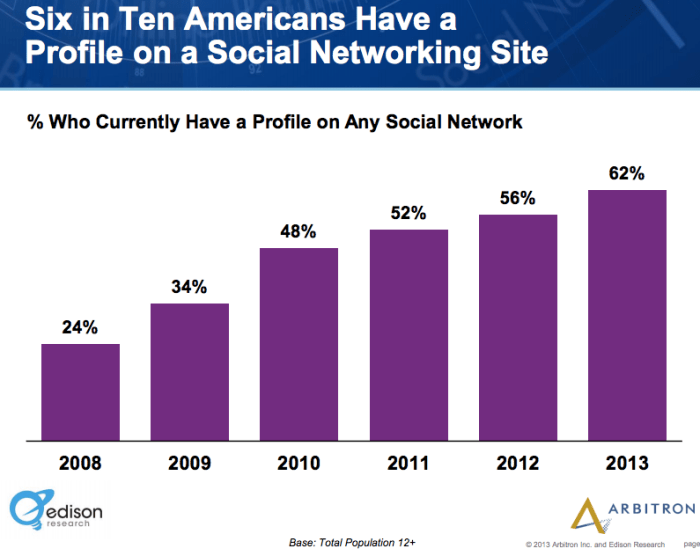
Networking tips for business growth is all about making meaningful connections that can propel your business forward. In today’s fast-paced world, the ability to network effectively can distinguish your business from the competition and open doors to new opportunities.
From mastering effective networking techniques to understanding how branding plays a crucial role in your networking efforts, this guide will provide actionable insights to enhance your professional relationships and ultimately foster business expansion.
Networking Strategies for Business Growth
Building strong connections is crucial for small businesses aiming for growth. Effective networking can lead to invaluable partnerships, customer referrals, and opportunities that might not be available otherwise. By leveraging personal connections and business relationships, entrepreneurs can enhance their visibility and credibility in their respective markets.Networking can be approached through various methods that cater to specific business needs and goals.
Engaging in community events, industry conferences, and online platforms can create a fertile ground for meaningful relationships. Here are some effective networking techniques that small businesses can utilize to expand their reach and influence.
Effective Networking Techniques for Small Businesses
Networking is not just about handing out business cards; it requires a thoughtful strategy. Small businesses can benefit significantly from proactive networking by employing the following techniques:
- Attend Local Events: Participating in community gatherings, such as farmer’s markets or local festivals, allows businesses to connect with potential customers face-to-face.
- Use Social Media Strategically: Platforms like LinkedIn, Twitter, and even Instagram provide businesses with tools to engage with industry peers, showcase expertise, and attract new customers.
- Join Professional Organizations: Membership in industry-specific groups can lead to valuable networking opportunities, mentorship, and resources that are essential for growth.
- Host Workshops or Webinars: Offering informative events not only positions you as a thought leader but also encourages attendees to connect with your business.
These techniques not only facilitate connections but also help in building a positive reputation within the community and the industry.
Successful Networking Events and Their Impact on Business Expansion
Networking events serve as an excellent platform for businesses to showcase their offerings and meet potential customers or partners. Examples of successful networking events include:
- Chamber of Commerce Luncheons: These events typically attract local business leaders and can lead to valuable partnerships and referrals.
- Industry Trade Shows: Companies like CEBIT and CES bring together professionals from various sectors, providing exposure and potential collaborations.
- Startup Weekends: These events allow entrepreneurs to pitch ideas and connect with investors, often leading to funding and mentorship opportunities.
Participating in such events has proven to significantly increase visibility and create new business opportunities, demonstrating the power of personal connections in fostering growth.
Building Long-Term Professional Relationships Across Industries
Cultivating lasting relationships in networking requires more than just initial interactions. Here are effective methods for establishing enduring professional connections:
- Follow Up Regularly: After meeting someone, reach out to them within a week to express gratitude and suggest ways to stay in touch.
- Provide Value Consistently: Share industry-related information, resources, or referrals that might benefit your contacts, reinforcing your role as a reliable connection.
- Maintain a Personal Touch: Personalize communications by remembering birthdays or significant milestones, which shows you care about the relationship beyond business.
- Engage in Collaborative Projects: Working together on a project or event can deepen relationships and create shared success.
Focusing on these strategies ensures that networking evolves from mere contact lists into meaningful, mutually beneficial relationships that contribute to sustained business growth.
Integrating Branding with Networking

Branding and networking are two crucial components for business growth that go hand in hand. A strong personal brand can open doors to new opportunities, enhance relationships, and create a lasting impression on potential clients and partners. When business owners strategically integrate their branding efforts with networking, they not only promote their business but also establish trust and credibility within their industry.
Branding significantly influences networking opportunities for business owners. A well-defined brand can attract like-minded individuals and organizations, leading to valuable connections. By showcasing a consistent brand message, business owners can position themselves as experts in their field, making them more appealing to potential collaborators and clients. The clarity in branding helps individuals understand what they can expect from the business, creating a sense of reliability and professionalism.
Strategies for Aligning Personal Brand with Business Message
Aligning your personal brand with your business message is essential for effective networking. To achieve this synchronization, consider the following strategies that will ensure your brand remains authentic and coherent in networking scenarios:
- Define Your Core Values: Identify the values that underpin both your personal and business identity. This clarity helps in portraying a unified message during networking interactions.
- Create a Consistent Visual Identity: Use the same colors, logos, and fonts across your personal and business materials. Consistency in visual branding reinforces recognition and trust.
- Craft Your Elevator Pitch: Develop a concise and engaging elevator pitch that encapsulates your personal brand and business value proposition. A well-prepared pitch enables you to communicate effectively in networking situations.
- Showcase Authenticity: Share personal stories and experiences that reflect your brand’s message. Authenticity fosters connection and makes you more relatable to others.
To maximize the impact of your brand during networking events, it’s imperative that your personal narrative aligns seamlessly with your business’s mission and values. This alignment not only builds trust but also enhances your reputation within your industry.
Leveraging Social Media for Brand Visibility in Networking
Social media platforms are powerful tools for enhancing brand visibility and facilitating networking. By using these platforms strategically, business owners can amplify their reach and connect with a broader audience. Here’s how to effectively leverage social media for networking:
- Choose the Right Platforms: Focus on social media platforms where your target audience is most active. LinkedIn is ideal for B2B networking, while Instagram can be effective for visually-driven brands.
- Engage with Your Audience: Regularly interact with your followers through comments, likes, and shares. Engaging content fosters community and encourages networking opportunities.
- Share Valuable Content: Post articles, tips, and insights relevant to your industry. Offering value positions you as a thought leader and attracts connections.
- Utilize Hashtags Wisely: Research and use relevant hashtags to increase post visibility. This practice not only helps in reaching a larger audience but also connects you with individuals interested in similar topics.
- Participate in Online Groups: Join groups and forums in your industry to connect with like-minded individuals. Actively participating in discussions can lead to valuable networking opportunities.
Incorporating these strategies into your social media approach can significantly enhance your brand’s visibility and create a robust network, ultimately driving business growth and success.
Networking for Business Services and Development
In the sphere of business services, particularly within consulting and service-oriented industries, networking serves as a crucial driver for growth and development. Establishing meaningful connections not only enhances visibility but also opens doors for collaboration, referrals, and new business opportunities. The essence of networking lies in building relationships that can withstand the test of time, facilitating knowledge exchange and mutual support among professionals.
Networking within Consulting and Service-Oriented Businesses
For those in consulting and service-oriented sectors, networking is all about creating value through relationships. This involves engaging with peers, clients, and industry influencers in a way that highlights expertise while providing insights into market trends and client needs. Effective networking strategies include frequent attendance at industry conferences, participation in webinars, and joining professional associations. These platforms allow professionals to showcase their knowledge, share their experiences, and foster long-lasting connections based on trust and mutual benefit.
- Utilize social media platforms like LinkedIn to engage with industry leaders by sharing relevant content, commenting on their posts, and offering insights.
- Attend local meetups or workshops relevant to your field to connect with like-minded professionals and explore potential collaborations.
- Host or participate in roundtable discussions or panels to position yourself as an authority in your area of expertise.
- Establish referral partnerships with complementary service providers to leverage each other’s networks effectively.
Networking Plan for Professionals in the Accounting and Financial Sectors
Creating a well-structured networking plan is essential for professionals in accounting and finance. This plan should focus on building relationships with potential clients, peers, and industry innovators. A successful networking strategy includes identifying specific goals, such as increasing referrals or establishing partnerships, along with actionable steps to achieve these goals.
- Identify key industry events such as conferences, seminars, and expos where you can meet potential clients and collaborators.
- Develop an informative elevator pitch that succinctly conveys your services, value proposition, and what differentiates you from competitors.
- Follow up with contacts through personalized emails or LinkedIn messages, reinforcing the connection made during meetings.
- Engage in online forums or groups related to accounting and finance, offering advice and participating in discussions to increase visibility.
Effective Networking While Traveling for Business Purposes
Traveling for business presents unique opportunities for networking that can enhance professional relationships and broaden your business reach. When on the road, being intentional about connecting with individuals in your destination can yield fruitful outcomes.
- Research networking events or industry gatherings in the area ahead of your travels, ensuring you have opportunities to meet key players during your trip.
- Schedule one-on-one meetings with existing contacts who are located in the city you are visiting. This not only strengthens current relationships but can also lead to referrals.
- Utilize co-working spaces to meet other professionals, engage in discussions, and potentially uncover collaborative opportunities.
- Consider leveraging social media to announce your travel plans, inviting local contacts to meet up and discuss mutual interests.
Networking isn’t just about collecting contacts; it’s about planting relationships.
Last Point

In conclusion, by leveraging the right networking strategies and aligning them with your branding, you can create a powerful network that drives business growth. Remember, successful networking is not just about making contacts but about building lasting relationships that benefit all parties involved.
Questions and Answers
What are the key benefits of networking?
Networking can lead to new business opportunities, partnerships, and enhanced visibility in your industry.
How can I improve my networking skills?
Practice active listening, engage in meaningful conversations, and follow up with your contacts regularly.
Is attending networking events really worth it?
Yes, networking events provide an excellent platform to meet potential clients and collaborators, allowing for valuable face-to-face interactions.
What role does social media play in networking?
Social media is a powerful tool for expanding your network, showcasing your brand, and maintaining connections with industry peers.
How can I network effectively while traveling for business?
Utilize local events, conferences, and meetups in your travel destination to connect with professionals in that area.





